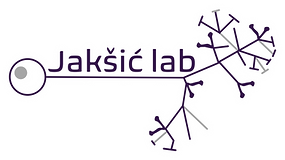
Outreach and sustainability
Science and research is the vessel of societal and technological progress and one of the most important human activities. However, in its current form it unfortunately comes at a great environmental cost. Research labs like ours are above-average producers of plastic waste, chemical waste, and CO2. While we can be passionate about our science, we also need to be honest about its environmental impact. It is our moral duty to do everything in our power to address this problem while maintaining the quality of our research. Our lab is embracing this duty by implementing various sustainability actions. We aim to reduce, reuse and recycle plastic usage in our lab and reduce our total CO2 footprint. We do so by creating and implementing various protocols and tools that help us and hopefully other labs to become more sustainable. We have also recently joined the Laboratory Efficiency Assessment Framework (LEAF) to certify, benchmark, track, and improve our lab's compatibility with environmental sustainability.
Our lab also aims to engage people outside of academia by showing how science is being done in real life, and who we scientists really are. It is important to showcase that real-life science and scientists are almost never like the ones we see in movies. Science is not a quick and easy fix to any pressing issue, but a long marathon, riddled with failed attempts, reconsiderations of previous thoughts, uncertainties, acknowledgments of being wrong, and constant scepticism toward being right. It is relentless and amazing effort of no single genius, but of exceptional groups of people who constantly and freely exchange thoughts, ideas and skills to reach a common goal. We also want to showcase that scientists today are not only old, messy-haired, white men, but rather a collection of diversity of people, similar only in their fundamentally scientific approach to finding the truth and explanations about ourselves and the universe that surrounds us.







